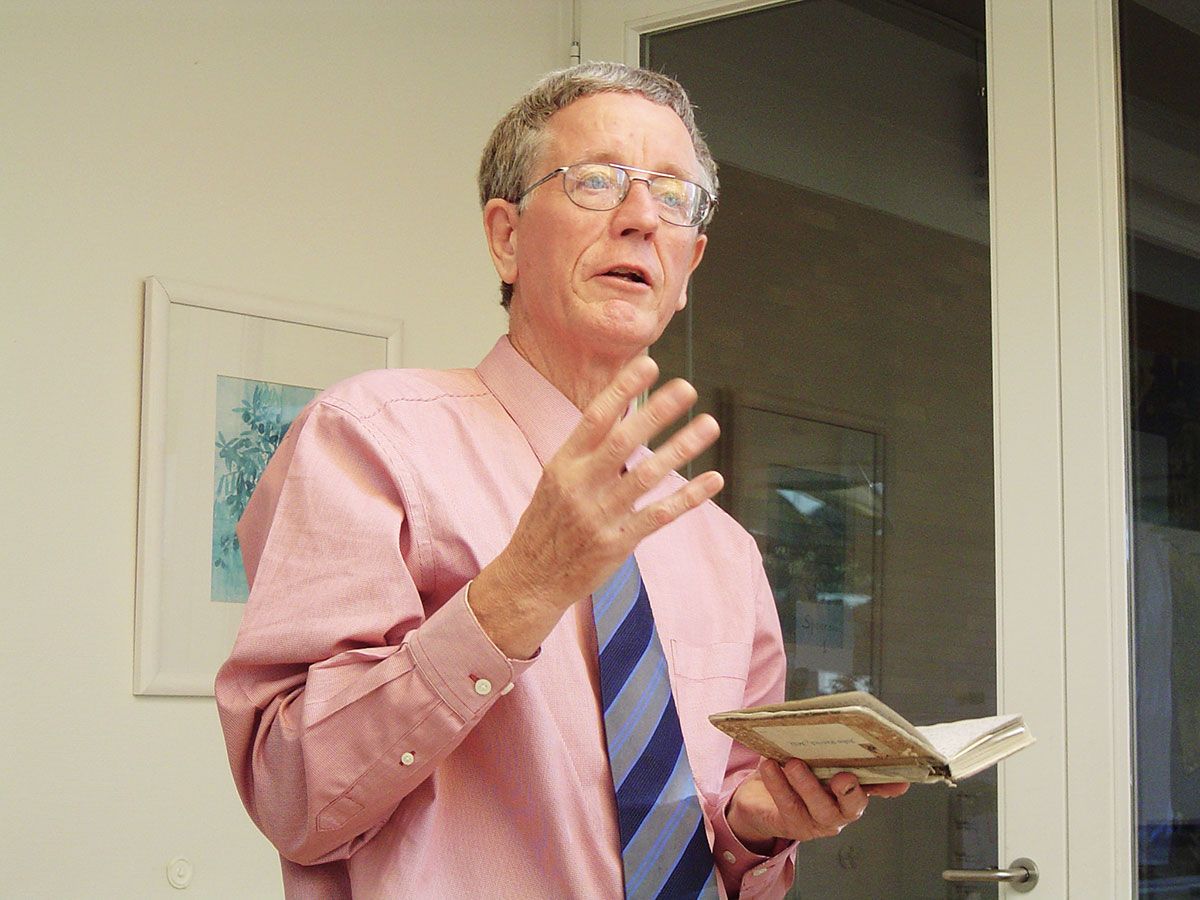Dr. John Patrick lectures throughout the world helping audiences, regardless of their beliefs, to understand the pivotal role played in all societies by faith and religion.

Dr. John Patrick has a rigorous speaking schedule and presents as many as 400 lectures a year. His talks can be grouped under four headings:
- Group 1: The Necessity of Belief
- Group 2: Medical Ethics
- Group 3: The Big Questions
- Group 4: Education
Group 2: Medical Ethics
The fundamental questions are not new but their current incarnations are. The old approach to medical ethics assumed everyone was primarily concerned for their patients and shared common ideas of good and evil, and that, therefore, it was not necessary to discuss ethics. With the explosion of technical skills and the growth of cultural diversity this no longer suffices. We are now being told how to behave by an elite secular group of bio-ethicists whose beliefs are not shared by most of our patients. Despite this, we continue to talk about patient-centred ethics!
- Much More than a Baby Dies in Abortion: the Logical Consequences of Abortion Legislation
- The Domino Effect of Legalising Abortion
- A Good Death: Physician Assisted Suicide and End of Life Decisions
- Manipulating Human Society: the New Eugenic Consequences of Molecular Biology
- Autonomy, Justice, Beneficence and Non-Maleficence: What to do When They Clash
- Every Patient Inhabits a Story: Narrative Ethics and Medicine
- Christian Thought in the Development of Western Scientific Medicine
- Ramifications of the Supposed Right to Choose
- The Sanctity of Life
- Meaning and Purpose in Medicine
- Moral Imperatives in Medical Care
- Faith, Medicine and Health Care
- Why Ethics Courses do not make us Ethical and What does
- What Hippocrates Knew and We have Forgotten
- The Secret of Caring for your Patient is in the Caring
- Limited Resources in Medicine
- The Disabled and Human Dignity
- The Unborn and Human Dignity
- Narrative Ethics
- Conscience Laws and the Christian Doctor
- Technology and the Depersonalization of the Patient
Group 4: Education
These talks focus on our educational institutions as well as general discussions about wisdom, knowledge and information.
- Loving Children and Loving Books: The Pillars of Education
- How Did We Get Here?
- Changes in the Meanings of Words after the Enlightenment, especially “Fact” and “Explanation”
- Enlightenment Paradigms
- The Strange Story of the Word ‘Fact’
- Recognizing Reductionism in our world, even in our church
- Reductionism and Moral Relativism
- The 5 Issues that will Destroy your Faith in University